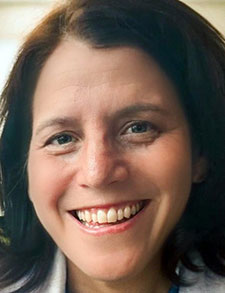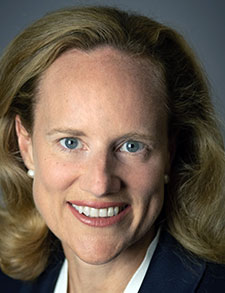 A lot of hospital medicine goes back to the mid-1990s when the term was first coined and the budding specialty’s first bricks were laid.
A lot of hospital medicine goes back to the mid-1990s when the term was first coined and the budding specialty’s first bricks were laid.

Dr. Hodde
Dealing with cancer as an inpatient expert wasn’t a building block then, but these days, it’s the latest growing subspecialty that needs a guiding hand. Enter SHM’s Oncology Hospitalists Special Interest Group (SIG), formed in 2023 and led by its co-founders, chair Jensa Morris, MD, FACP, and vice chair Naomi Hodde, MD, FACP, FHM.

Dr. Morris
“We were both building programs from scratch,” said Dr. Morris, director of the Smilow Hospitalist Service and an associate clinical professor of medicine at Yale New Haven Hospital in New Haven, Conn. “We were looking for colleagues at other institutions who had more established programs…and hoping to connect with others who had hopefully laid the groundwork and learned from their mistakes.”
“It’s vitally important, especially when you work in a field that is new or changing, to hear what people at other institutions are doing,” said Dr. Hodde, an associate professor of medicine and director of the oncology hospitalist program at the Robert Larner College of Medicine at the University of Vermont in Burlington, Vt. “How they are going about forming their services, staffing their services…learning from other people what they’re doing, hearing how they solve problems, and just having somebody to bounce ideas off of is really validating and makes me feel so much more supported.”
The experience has paid off for hospitalists at institutions large and small, Dr. Morris says.
“I’ve already found value as we build and expand and I have continuous streams of questions,” she said. “We just initiated a cancer-specific rapid-response team here at Smilow Cancer Center. I reached out to all sorts of institutions to say, ‘What are you doing, and how are you doing it? And is it working?’ And that helped us.”
The SIG holds three of four events annually, including one at SHM’s Converge. The others are a mix of video conferencing and an HMX web portal through which the group advertises. One upcoming forum is discussing the role of advanced practice practitioners (APPs) in an oncology hospitalist group.
“What is the best way for them to be integrated? Having a team-based care model for these patients is the standard of care, so how do we all work together?” Dr. Hodde said. “That’s something we’re going to be raising with clinicians from different institutions…about how other programs might either think about incorporating advanced practice providers or maybe change their role in the clinical team.”
Dr. Morris says standardization of structure and care pathways is a key focus because the more groups can tackle problems the same way, the more they can measure results. “One hundred percent,” she adds. “I think hearing how people are doing it, understanding what the evidence teaches us, and then being supported in implementing that at different institutions is how we’re going to achieve the best care possible for these patients.”
Dr. Hodde says that working with other SIGs—the groups focused on APPs and palliative care, for example—is another way to get more people involved, as is reaching out to folks who aren’t even in oncohospitalist medicine but are thinking about it.
“In order to get participation, we have to present content that obviously interests people, but I think what it is, is people have so many unanswered questions, and we have to get the group together around those unanswered questions about how we build or expand our programs,” Dr. Morris said. “I think that will keep people engaged. Turns out we’re all asking the same things.”
One point of pride for the SIG is discussing both victories and failures. Dr. Morris tried at one point to have oncology hospitalists on the malignant hematology service, but it didn’t work. She tried despite others having also tried and failed.
“I am humbled often by some of the mistakes that I continue to make despite having been practicing hospital medicine for many years,” Dr. Hodde said. “But I think learning from others’ mistakes is always helpful. One of the things I’ve learned is how important it is to get all the stakeholders’ voices at the table. That includes the oncologist, the hospitalists, nursing, care management, pharmacy, and therapists. Oncohospitalist medicine is such a fertile ground for high-functioning, team-based care.”
Perhaps the SIG’s best advice is that its leaders have already been through the birth of a specialty.
“It’s exciting to be part of a field that is just emerging,” Dr. Morris said. “And what’s really interesting, and I’m going to suspect that Naomi feels the same way here, is that when I started in hospital medicine, hospital medicine was an entirely new field. Now, oncology hospitalist is a new field, so I feel like I’ve been on the leading edge of these two movements.”
Richard Quinn is a freelance writer in New Jersey.